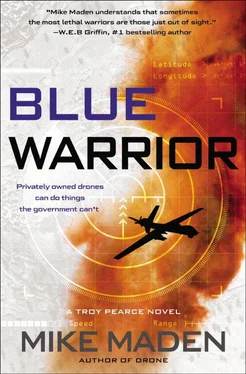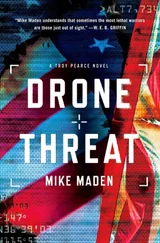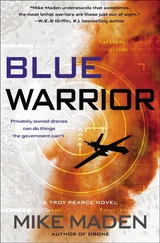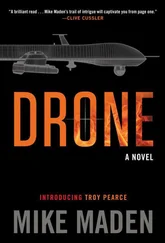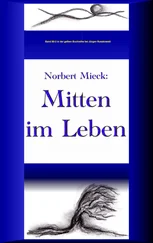First Lieutenant Pyotr Krasnov rode at the head of his small column of five Renault Sherpa 3As, low-profile trucks that looked like aerodynamic Humvees. A Russian national, he previously served with distinction in the 98th Guard Airborne Division as a sergeant in the South Ossetian War, but he was put under house arrest pending a court-martial after assaulting an officer he considered cowardly. He avoided prosecution only by escaping the camp and fleeing the country.
Now Krasnov proudly wore the kepi of the French Foreign Legion. A tattoo of huge block letters ran the length of his muscular right forearm that read LEGIO PATRIA NOSTRA—“the Legion is my Fatherland.” He was willing to fight and die for France because the Legion had given him a home, no questions asked. Bald and thick like a power lifter, the two-meter-tall ex-paratrooper was as tough as they came in one of the world’s toughest fighting units. He was one of the few foreign nationals to fight his way up into the officer corps, making him an even rarer breed of elite warrior.
Lieutenant Krasnov hated the jihadists. He had had a bellyful of them on his tour in southern Afghanistan, and he’d seen the carnage they wrought over the years in suicide bombings in his former country, particularly the fanatical Chechens and their murderous assaults against hospitals, theaters, and even schools. He was happy to be chasing the scum today, but if the intel wasn’t any better than what he’d received over the last several weeks, he expected this to be a another waste of time and fuel. His column raced along the flat paved road at 120 kph just in case any IEDs were deployed and his Sherpas blasted out electronic jamming signals to prevent remote IED detonations. A large IED could tear even armored vehicles like his in half like a soft baguette.
“Lieutenant, do you see that?” His driver, a lanky American kid, pointed at a man in the road far up ahead waving a white cloth vigorously over his head.
Krasnov pulled up a pair of field glasses. The man in the road was obviously an American or European. His long blond hair was matted with sweat and tucked under a salt-stained ball cap. His big, bushy beard made him look like a Viking, even from this distance, and he wore a civilian uniform of some sort, but Krasnov couldn’t quite make out the logo. A Nissan pickup was parked near him on the side of the road in the sand, its hood up.
Krasnov radioed the rest of the convoy to prepare to stop. His driver tapped the brakes and began to slow, downshifting as the tachometer drifted toward zero. The driver eventually stopped, pulling even with the broken-down truck. Krasnov radioed to the other troopers to remain in their Sherpas, but he dismounted along with the two privates riding in his command vehicle, a dour blue-eyed Pole and a hawk-faced Spaniard. The American driver remained seated, engine idling.
“Hey! Thank God! You speak English?” the man said. His white teeth smiled through his wild beard. His name was stitched on the sweat-soaked shirt of the faded British Petroleum uniform: “Magnus Karlsen.” The accent sounded Nordic to Krasnov. The man certainly looked the part.
“Yes, I speak English. What are you doing out here?” Krasnov smiled behind his dark wraparound sunglasses, but his suspicious eyes darted all around the scene.
The Pole and the Spaniard kept their automatic rifles slung low as they casually circled around the truck, checking for weapons and drugs.
“Stupid GPS! It sent me the wrong way. And then this piece of shit”—Karlsen kicked the Nissan’s fender hard—“decided to run out of petrol on me.”
“Swedish?” Krasnov asked.
“Norwegian. I think we are both far away from home.”
“You think so?” Krasnov pulled his glasses off and wiped the sweat off his face with his gloved hand. He glanced up at the Spaniard, who shook his head no, indicating nothing unusual about the truck.
“You need some water, Mr. Karlsen?”
“Yes, please. I ran out.” He pointed at half a dozen small empty bottles littering the sand around him.
Krasnov reached into the Sherpa cab and pulled out an unopened liter bottle of water. He tossed it to the big Norwegian.
“Thank you.” He cracked it open and drained it in one long chug, the water dribbling down the sides of his mouth onto his beard and shirt. He finished and grunted like a sated Viking would, then crushed the bottle in his thick fist and tossed it. “How about some petrol? Can you spare any?”
Krasnov nodded. “A little. Ten liters should be enough to get you back to town.”
“Perfect. Thank you.”
Krasnov nodded wordlessly to the Pole, who crossed to the Sherpa and reached for the jerry can.
“You want me to call you in?” Krasnov asked. “Your bosses must be worried.”
Karlsen grinned again. He pulled out an old cell phone from his pocket and waved it at Krasnov. “Called in two hours ago, before the battery died. They should have been here by now. You didn’t pass them on the way here?”
Krasnov shook his head and said, “No,” still scanning the horizon. In the far distance, high in the hazing blue sky, a plane. The Russian shielded his eyes with his gloved hand but couldn’t make it out. Too high up. Probably nothing. The windless air stank of diesel fuel now.
The Pole set the jerry can down after filling the Nissan’s tank. “Finished, Lieutenant,” he muttered.
“Secure that can, and the two of you load back in.”
“Yes, sir.”
The Norwegian folded himself into the cramped pickup cab and turned the key. The engine coughed for a couple of revolutions and then sputtered to life. “Excellent!” The bearded man threw a big thumbs-up at Krasnov.
“Better get going,” Krasnov said. He shut the Nissan’s door, leaving his hands on the sill.
Karlsen held out a big, sweaty hand. “You saved my life. I can’t thank you enough.”
Krasnov hesitated, then shook his hand.
Karlsen nodded his thanks again, slammed the truck into first gear, and sped away past the convoy of Sherpas. Krasnov watched him for a few moments, then keyed the radio mic on his shoulder. “Time to get back to work, gentlemen. And keep the music off. I want everybody on high alert.”
The big Russian tapped on the driver’s window. It rolled down. “I want you to call that guy in. Have someone run a check on those plates, too.”
“Already did, Lieutenant.”
Seven hundred meters away, Karlsen slammed the brakes. The rubber squealed on the asphalt.
Krasnov glanced toward the noise. He raised himself up on the Sherpa’s step to get a better vantage. Saw Karlsen’s truck parked on the road, driver’s door open. Where did he go?
Krasnov glanced down at the road beneath his feet, then the sand by the side of the road. He saw it. There.
Too late.
One hundred feet of C4 erupted. Even half a mile away, Karlsen felt the pressure wave. It rocked his truck and spattered sand in his face like buckshot. The earplugs hardly helped, but he covered his ears with his hands, too, and opened his mouth. The air sucked out of his lungs so hard he thought they’d come up through his mouth. But a second passed and he gasped for air and knew he’d survived. His nose was runny. He pinched it with his fingers. Blood. His ears rang and his head ached. His pagan forefathers would have said that Ragnarök had begun—the end of the world. But, inshallah , not yet. At least not for him. Not for Al Rus. Not for the Viking.
The big Norwegian muttered a prayer of thanksgiving to Allah, then stood and brushed himself off. He crawled back into his Nissan and sped back to the scene. Smoke and dust boiled over the explosion site like a fog of doom. On the far side of the road, the Sherpas were gone. A debris field of twisted steel littered the sand. Clearly, no one had survived.
Читать дальше
